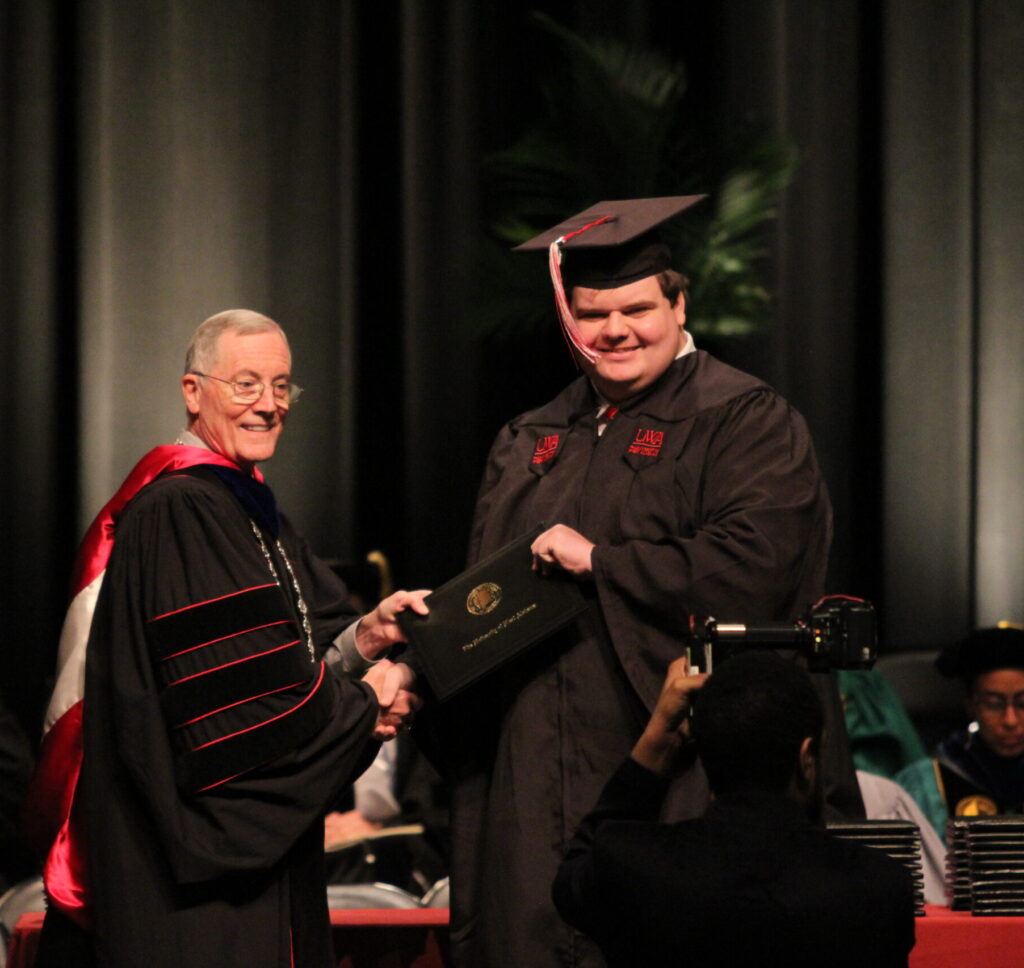Instruction in basic electrical/electronic principles related to AC/DC theory and methods of applying this knowledge to various circuits as used by industry. Includes introduction to discrete semiconductors, amplifiers, power supplies and digital electronics. Includes laboratory component. Prerequisite or Corequisite: MH113 or higher MH course.
The Bachelor of Science in Engineering Technology is accredited by the Engineering Technology Accreditation Commission of ABET, https://www.abet.org/, under the commission’s General Criteria with no applicable program criteria.
The Bachelor of Science (BS) degree in Engineering Technology combines math and physical science skills with access to state-of-the-art equipment and software programs, enabling graduates to become valued assets in many manufacturing environments and other technology-related employment opportunities.
The Program Educational Objectives for Engineering Technology students post-graduation are:
- Contribute to the development of both themselves and the company by effectively determining solutions and applying skills in engineering technology.
- Advance in their chosen engineering technology profession by being successfully employed and demonstrating strong skills in communication, team building and leadership.
- Participate in professional development, expanding their knowledge and capabilities through continuing education, or an advanced graduate degree or other lifelong learning.
- Serve as a positive role model in their communities, whether locally, nationally or globally, by conducting themselves with high standards of ethics.
Program graduates will have achieved the following five Student Outcomes with an ability to: (1) Apply knowledge, techniques, skills and modern tools of mathematics, science, engineering, and technology to solve broadly-defined engineering problems appropriate to the discipline; (2) Design systems, components, or processes meeting specified needs for broadly-defined engineering problems appropriate to the discipline; (3) Apply written, oral, and graphical communication in broadly-defined technical and non-technical environments and identify and use appropriate technical literature; (4) Conduct standard tests, measurements, and experiments and to analyze and interpret the results to improve processes; and (5) Function effectively as a member as well as a leader on technical teams.
Visit the Academic Catalog for information regarding program admission requirements, prerequisites, course offerings and more.
Program Facts
Program Format
On Campus
Start Term
Spring, Summer and Fall semesters
Tuition Cost
Number of Credits
123-125 hours
Academic Calendars
Request More Information
Loading...
Sample Courses
ET221 AC/DC Theory I
3 Credits
ET240 Fluid Power
3 Credits
Basic laws, principles, and components found in a fluid power system used in industry. Includes laboratory component.
ET334 Computer-Aided Engineering
3 Credits
The generation of 2D graphic designs with computers as well as computer terminology, components, applications, and functions. Includes laboratory component.
Similar Programs
Computer Engineering Technology
Available in Major / Minor
Engineering Technology
Available in Major
Technology
Available in Major
Suggested Minors
Computer Engineering Technology
Available in Major / Minor
Electrical Engineering Technology
Available in Major / Minor
Mechanical Engineering Technology
Available in Major / Minor
Career Outlook
Bachelor of Science in Engineering Technology degree program graduates have the technical skills to use everything from Electrical Motor Controls, Production Planning and Controls and Computer-Aided Drafting/Design to Mechanical Engineering Technology to create new products and machines for the manufacturing and utility industries. Prepared for careers in the Engineering and Manufacturing fields, graduates find careers as Process Engineers, Facility Engineers, CADD Engineers, Project Managers and more.




Financial Aid & Scholarships
Financial aid and scholarships provide invaluable opportunities for students to pursue higher education and achieve their academic goals. Financial aid encompasses various forms of assistance, including grants and fellowships, loans, work-study programs and scholarships. Financial aid and scholarships alleviate the financial burden of tuition fees, textbooks and living expenses, making higher education more accessible to students from diverse backgrounds. By supporting students’ financial needs, universities foster a culture of inclusivity, equal opportunity and lifelong learning.
Hear From Our Alumni
Hear from previous and current students about their experiences.

Frequently Asked Questions
Are you a prospective student or visitor looking for information quickly and efficiently? The frequently asked questions (FAQ) section on the university’s website answers common inquiries about admissions, tuition, programs, campus facilities and more.